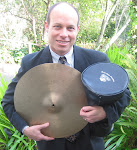The Romantic Ideology closely parallels the endogenous view of developmental theories. Children are viewed as possessing an innate “inner worth” that demands respect and consideration. This view is exemplified by the philosophy of Jean-Jacques Rousseau—naturalness is good and schools should provide freedom where children can develop naturally.
Educational practices should be flexible enough to permit their inner “good” to develop unshackled by the constraints, values, and rigid expectations of teachers. Children know best what interests them. “We don’t need no education…” (Pink Floyd) The child's mind works like a plant—just let it grow.
The Traditionalist Ideology corresponds to the exogenous view of development. Traditionalist educators make extensive use of concepts derived from operant conditioning and social learning theories. This is the philosophy of John Locke and the British Empiricists—the mind as a tabula rasa.
W.A.Mozart was trained by his father using the best pedagogy known. The Hungarian Polgar sisters, later known as chess geniuses, were trained early on by their father as well. Research shows that one needs 10,000 hours of training to become an expert in anything.
The purpose of education is to transmit to each generation a specific body of information that reflects society’s value, and the teacher must transmit specific facts, skills, and moral values. Children are believed to be inherently malleable and are shaped by the consequences of their behaviors. Effective education uses the science of learning, derived from behavior analysis.
The Progressive Ideology reflects an interactional-constructivist orientation. Unlike the Romantics progressives do not assume that development occurs as the unfolding of some natural plan or that education should foster children’s own self-interests. Unlike the traditionalists, progressives view learning in terms of problem-solving ability rather than the learning of specific facts and skills, reflecting the philosophy of John Dewey.
Educators
should provide problems and cognitive conflict that stimulates the development
of logical and critical thought—thinking and reasoning. Open
classrooms, schools without walls, cooperative learning, whole language, the social curriculum, experiential education, and numerous
forms of alternative schools all have important philosophical roots in
progressive education.
Which approach one prefers, Romanticism, Traditionalism, or Progressivism may be determined by the task one is teaching. Is it shooting free-throws in basketball, choosing which board game is the most fun, increasing moral development, learning a new language, loving a friend, becoming a better chess player, learning to play the drums, or deciding
whether to major in psychology or mathematics?







No comments:
Post a Comment